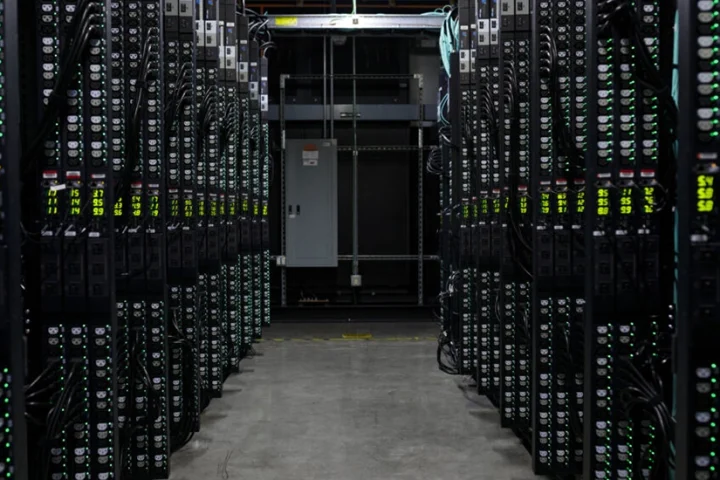By: Professor Payyazhi Jayashree, Dean, School of Business, University of Wollongong in Dubai (UOWD)
The future once promised by AI is already here, a present-day reality, integral in nearly every phase of modern business. From automating work to enhancing experiences and powering data-driven strategies, AI is redefining how businesses operate. More than just a tool for efficiency, AI is rapidly becoming the driving force of business innovation, unlocking game-changing opportunities. This transformation extends beyond the corporate world; it is now transforming how we educate the next generation of business leaders.
Where AI is the present and the future, business education must evolve to stay relevant. UAE recently introduced an AI curriculum for students as young as four, underscoring the nation’s vision to become a global leader in AI by 2031. Against this context, business graduates must be equipped with practical AI skills relevant to business, along with an understanding of how to lead AI strategy at an enterprise level.
It’s also about building ethical judgment, sharpening critical thinking, and helping students stay adaptable and employable in a constantly changing world. Educators should focus on developing future-ready professionals who can thrive, lead, and innovate in an AI-powered world.
Redefining Business Curriculum through AI
Business education models are evolving at a rapid pace with a strategic focus on building future-readiness amongst graduates in a rapidly changing business context. Today’s students are learning through simulations, hands-on experiences and work-integrated learning, shaped by an intentional and strategic focus on building competencies and skills, in line with the industry’s demands. As artificial intelligence is rapidly reshaping the business field, educators are reforming the traditional teaching models, taking a more systemic view of how artificial intelligence can be integrated into the business curriculum.
Predictive AI models are being used to address real-world business challenges across areas such as marketing, finance, supply chain and human resource management. The business curriculum has evolved to equip students with the skills needed to work with these robust predictive AI models. By mastering such skills, students develop expertise in designing and deploying AI-based solutions tailored to various industries, fostering a practical understanding of how AI-powered tools can be leveraged to optimize operations, enhance customer experiences, facilitate talent retention and drive innovation.
Our team at the University of Wollongong in Dubai is pushing the boundaries of what business education can look like. For example, UOWD’s Business Analytics programmes at both Undergraduate and Postgraduate levels prepare students for an AI-powered future. The curriculum’s strategic focus on Predictive and Prescriptive Analytics, advanced Data Science tools, and Generative AI ensures that graduates are equipped to thrive in the evolving and increasingly AI-driven business landscape. By transforming traditional “Business Intelligence” into “Business Analytics” students gain the ability to analyse historical data and predict future trends using AI tools, providing actionable insights on what lies ahead. This focus on the ‘future’ equips graduates to make decisions and solve complex business challenges with precision, using AI-enabled foresight, creativity, and a deep understanding of context.
Students are also exploring the potential of Generative AI (GenAI) through hands-on experience with tools such as Python and IBM Watson, along with the integration of OpenAI’s Large Language Models (LLMs). They are learning how to build custom Generative AI solutions using Python, which enables them to develop scalable, AI-driven systems tailored to diverse business needs. From automated content generation to personalised marketing strategies and intelligent customer service systems, this practical exposure equips students to harness GenAI for real-world business innovation.
The integration of AI extends beyond business analytics programmes into different disciplines. For example, in marketing programmes, it involves concepts and practices such as AI Marketing Implementation and AI-driven Digital Marketing, becoming foundational to the new curriculum. Students are already gaining exposure to a wide variety of AI tools such as ChatGPT, Jasper AI, SEMrush, Midjourney, and Microsoft Power BI, which gives them an edge to thrive in an AI-driven Marketing landscape.
While AI is becoming a vital part of education, it’s important to remember that knowing how to navigate AI alone isn’t enough to succeed in the business world. A business curriculum that integrates AI needs to focus on developing relevant AI skills, while also integrating immersive learning experiences that develop meta-skills, including self-awareness, emotional intelligence, ethical judgment, adaptability, systems thinking, and resilience.
One key conversation that continues to shape the future of business is the evolving nature of jobs/roles in business. Ultimately, the focus should be on upskilling and reskilling the students, as AI is providing more powerful tools. AI acts as an additional layer that amplifies human potential. It is therefore important to continuously invest in closing skill gaps, especially in the use of AI tools and the ability to interpret AI-generated insights, while continuing to develop strong disciplinary and functional knowledge. This combination will empower future professionals to use AI ethically and strategically, driving innovation and sustainable growth in business.
Looking ahead, the future of business is dependent on leveraging AI in strategic ways to drive innovation and impact. Thus, AI will need to be integrated in strategic and tactical ways in business education, equipping students with conceptual and practical skills in leveraging AI tools for value creation.
This integration is not just an advantage, but a necessity for preparing future-ready graduates who can meet the evolving demands of the workforce with confidence and adaptability.





















